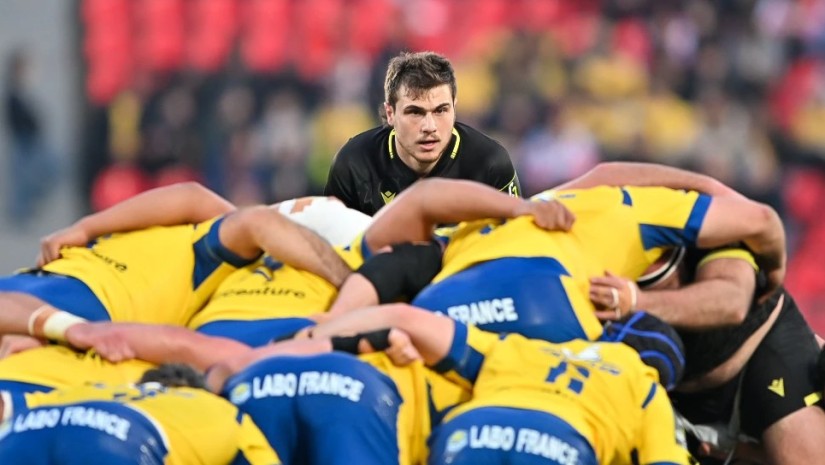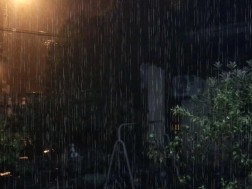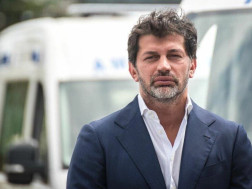Last Saturday in Tbilisi, more than 17,000 people packed into the Mikheil Meskhi Stadium to watch Black Lion play Clermont in the Challenge Cup. The Times spreads the information.
Bar the games at Toulouse, Leicester and Munster — who between them have won the Champions Cup nine times — it was a bigger crowd than at any other fixture in either European competition.
This was Black Lion’s first season in the second-tier tournament as part of a three-year deal to give the franchise run by the Georgian union vital exposure at elite club level.
All around the country, there is hope that the manner in which the opportunity has been grasped on and off the pitch will serve to further their ambitions for even more gilded doors to be opened to them in the coming years.
The Georgians would love to develop a United Rugby Championship franchise, and the ultimate goal is a place in a reimagined Six Nations, but for now a competition which has long been regarded as the ugly sister in more established European circles is giving them some of the love they crave.
Black Lion were competitive in three of their four pool games, the exception being a 36-3 thrashing by the men from Auvergne. Before Christmas, they won away to Scarlets — a side with some 149 more years of history — and finished within five points of Gloucester in Tbilisi.
More than 1,000 fans made the trip to France for the match against Castres, while last week’s merry throng were treated to a full day of entertainment. It started with pre-match live cooking demonstrations and a market run by social enterprises, there was a mini concert from Diana King of I Say a Little Prayer fame then supporters partied long into the evening at the ground before moving on to one of the many local hostelries which honour Georgia’s 8,000 years of winemaking heritage.
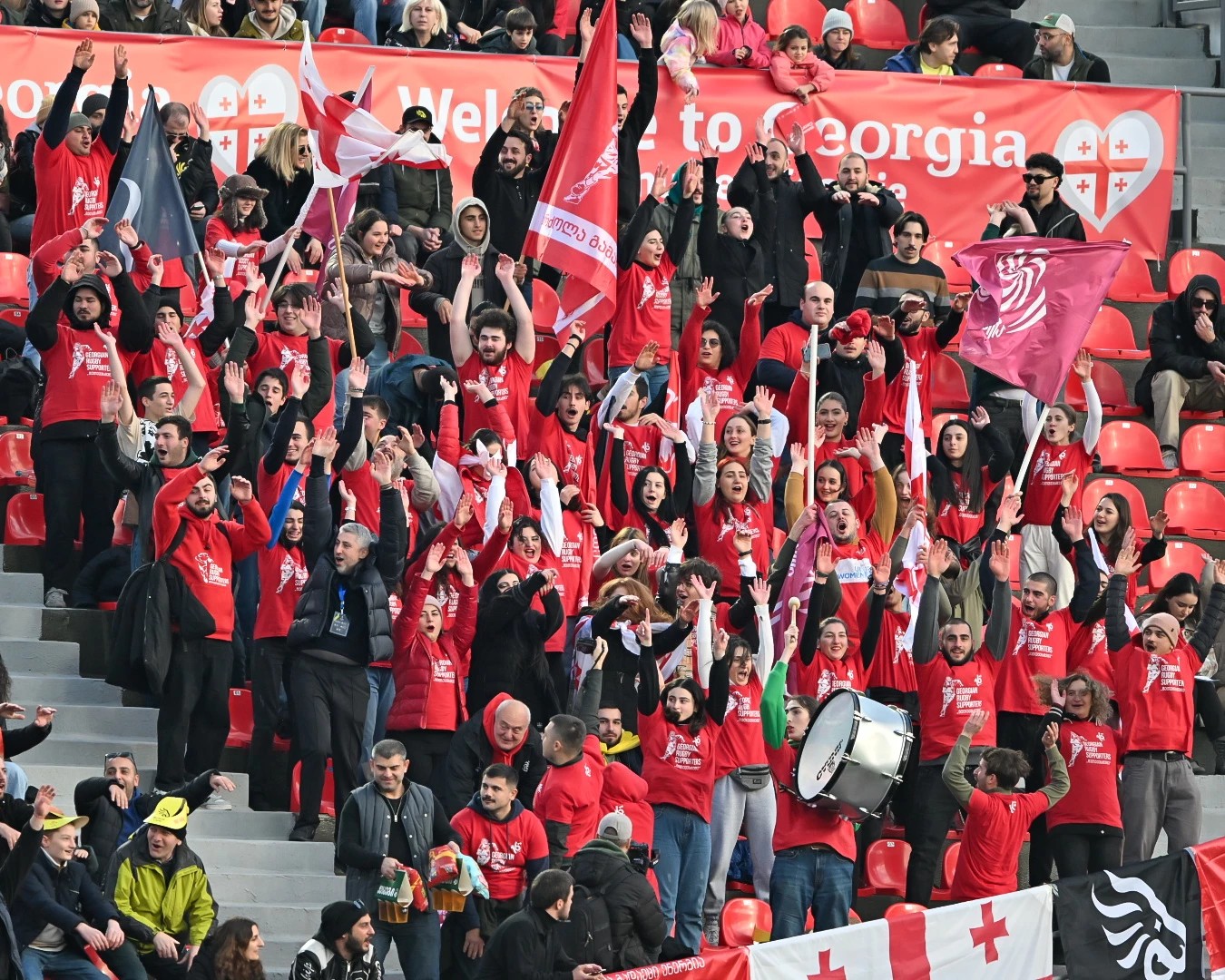
This wider offering is key to the bid to establish Tbilisi as a destination of choice on the European circuit. Having now been there twice, first with Scotland before the 2019 World Cup (still the only visit from a so-called Tier One nation) and then again last week, I can vouch for the rich mix of culture, history, gastronomy and hospitality.
As Richard Cockerill, the former England hooker who has just been appointed head coach of Black Lion and the national team, said, “It’s so different to what you imagine coming from the west, where we can sometimes think that anything east of Italy is going to be dodgy.
“The food, the culture, the weather, the wine: this can be a great destination to come and watch rugby and enjoy a weekend. It’s a good place with lots going for it and the rugby is growing.”
Although a number of Georgia’s best players — such as the Lyon back-three star Davit Niniashvili — are still based in France, Black Lion has become a vehicle to retain and return players of national interest. Around 60 per cent of the Georgia squad are on the books, with a conscious policy of not signing foreigners.
They had a year in the second tier of the South African Currie Cup, then a season playing sides from the Super Rugby Americas competition, but Europe is where they crave deeper ties. Soso Tkemaladze, the Georgian Rugby Union president, waxes lyrical when recalling how he struck the Challenge Cup agreement at last year’s European finals weekend in Dublin, with Dominic McKay, the former Scottish Rugby Union chief operating officer turned EPCR chairman, playing a vital role.
“Dominic is a big supporter of Georgian rugby,” Tkemaladze said. “He understands what we’re trying to do here and he recognises the importance of commitment to expanding the game globally. We are trying so hard to create more opportunities on different levels, and to show that we are worthy of them, and EPCR were bold enough to answer the door when we knocked.
“We support rugby because it’s about teamwork. As a big team we can do fantastic things together. URC we are looking for, but the Challenge Cup is a big first step for that as well. If we had been losing by 100 points, which some clubs from smaller countries have done in their first years of involvement, it would not have sent a good signal, but we have already seen that we can be competitive.
“Everyone talks about Six Nations and of course we want to get there, but there are a good number of necessary steps that need to happen beforehand. We will keep knocking, and we hope that more people will start answering, just as Dominic and EPCR have done.”
The Georgians have long been lobbying for admission to the under-18 and under-20 men’s Six Nations, with their side at the older level having seen off teams such as England, Scotland, Argentina and Italy in recent years.
It is hoped that an invitation to the under-18 festival will be forthcoming in short order — perhaps as soon as this year — not least to provide another target for those using the wealth of first-rate rugby facilities created in the country in recent times.
Bidzina Ivanishvili, the former prime minister of Georgia, has invested some £80 million since 2011 through his Cartu charity foundation, while the Georgian government contribute around £10 million of the union’s annual £14 million budget.
The high performance wing will now be overseen by Levan Maisashvili, the coach whom Cockerill replaced after a winless World Cup campaign. Stuck between a rock and a hard place, Georgia have won 12 of the past 13 editions of the Rugby Europe Championship (widely regarded as the shadow Six Nations) while Black Lion have won the European Super Cup, a club competition for emerging nations, in each of its three seasons.
“Black Lion allows us to get over the situation we had after the 2019 World Cup where our players in the domestic league were on a totally different level to the ones based in France,” Maisashvili said.
“We are showing that we can be competitive against anyone but we need time and we need opportunity. Without the competition, without the games, it is a waste of time.”
Although URC chiefs will be reluctant to contemplate yet another change to a tournament now beginning to find its feet and its place following the addition of four South African sides, Cockerill — who previously coached Edinburgh — is fascinated by the possibilities it could offer Georgia. He also sees parallels between his new beat and the one he held for four years in the Scottish capital, where much of his remit concerned producing and protecting players for the national team.
“If the URC can play in South Africa, there’s no reason why we couldn’t join that competition at whatever point,” Cockerill said.
“It’s no different to when the Italians joined the competition and Benetton are now one of the top teams. We’ve just got to keep doing what we’re doing and keep trying to improve the rugby.
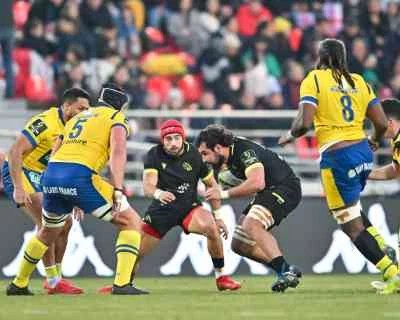
“It’s about building as much depth as we can. People in Scotland think they don’t have many players, and that’s with 50,000 compared to the 3,500 here.
“We’ve just got to keep getting better, winning games and proving that at whatever point the opportunity comes from a national team point of view and we get let into whatever they’re going to create, we are good enough to be playing.
“Black Lion haven’t embarrassed themselves in any way, shape or form in the Challenge Cup and we need to keep being exposed to the level that the lads have experienced there.
“Going to Castres for some guys was their first time playing in France against that quality of team. If we’re good enough and compete, more people will want us in their competitions. The board and the president will deal with the politics, but the best way for us to make people stand up and take notice is for us to win matches.”
The Georgian game exudes pride, passion and ambition. Niko Gigineishvili — a data manager at the union who designed the double-sided Georgia/Black Lion scarves that sold like hot cakes at the Clermont match — tells me how his late father, Zaal, a rugby historian, came up with a list of new Georgian words to describe positions and game terminology in a small act of rebellion against the Soviets, while Nikoloz Alavidze, Tkemaladze’s senior adviser, explains that “struggle is in the soul of the Georgian people. We have always had to fight for our future and if we didn’t have that spirit, we would not have survived.”
Maisashvili embodies this ethos of resilience. He came perilously close to death in 2021 after contracting Covid on a tour of South Africa, but recovered to oversee landmark wins at home to Italy and against Wales in Cardiff the following year.
“I pretty much died twice,” he recalled. “I spent a lot of time in hospital in Joburg: one month in a coma then another month for recovery. I came back to Georgia and just under one month later I was back out on the field. Everyone thought I was crazy, but the field is where I live. It helped me to recover much more quickly.
“I had been in a critical situation, everyone just waiting for the moment it [death] would happen. I was only 50-55kg when I woke up from the coma; I had lost 35kg.
“Everything is OK now, I am fully recovered. I always tell my players that we must fight for what we want, and those are the emotions and the actions that will help Georgian rugby get to where it needs to be.”









